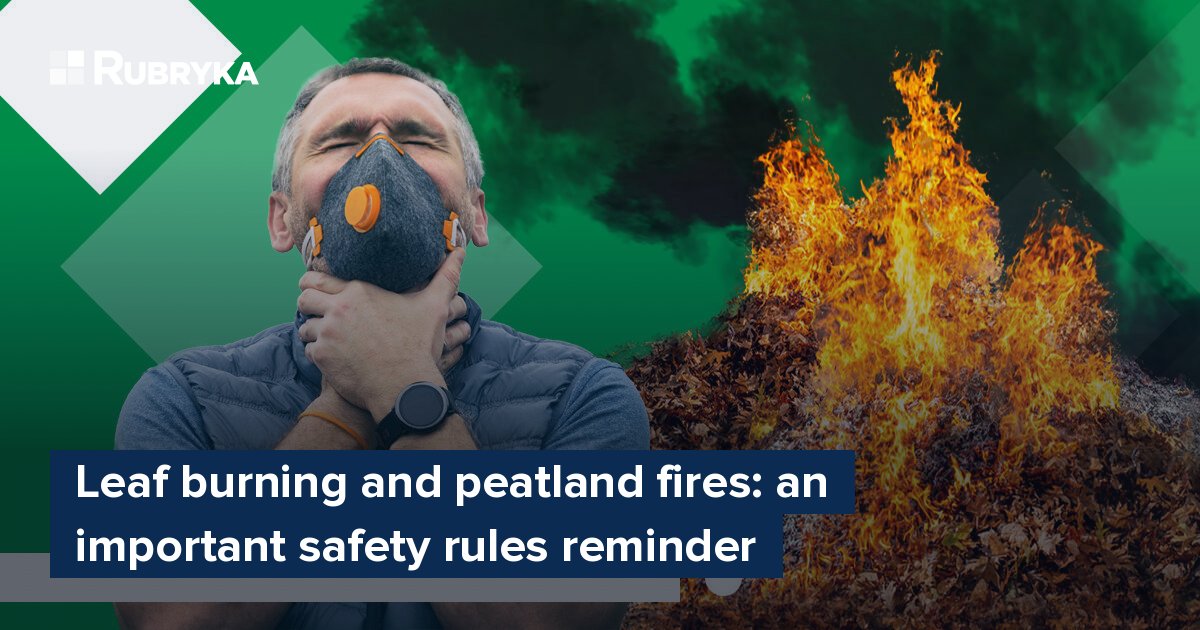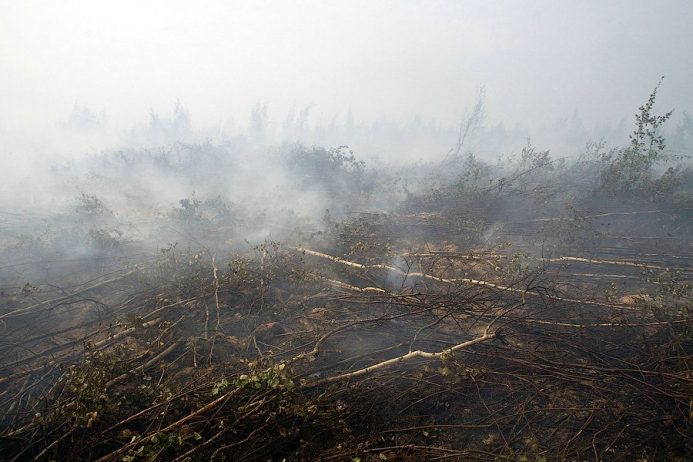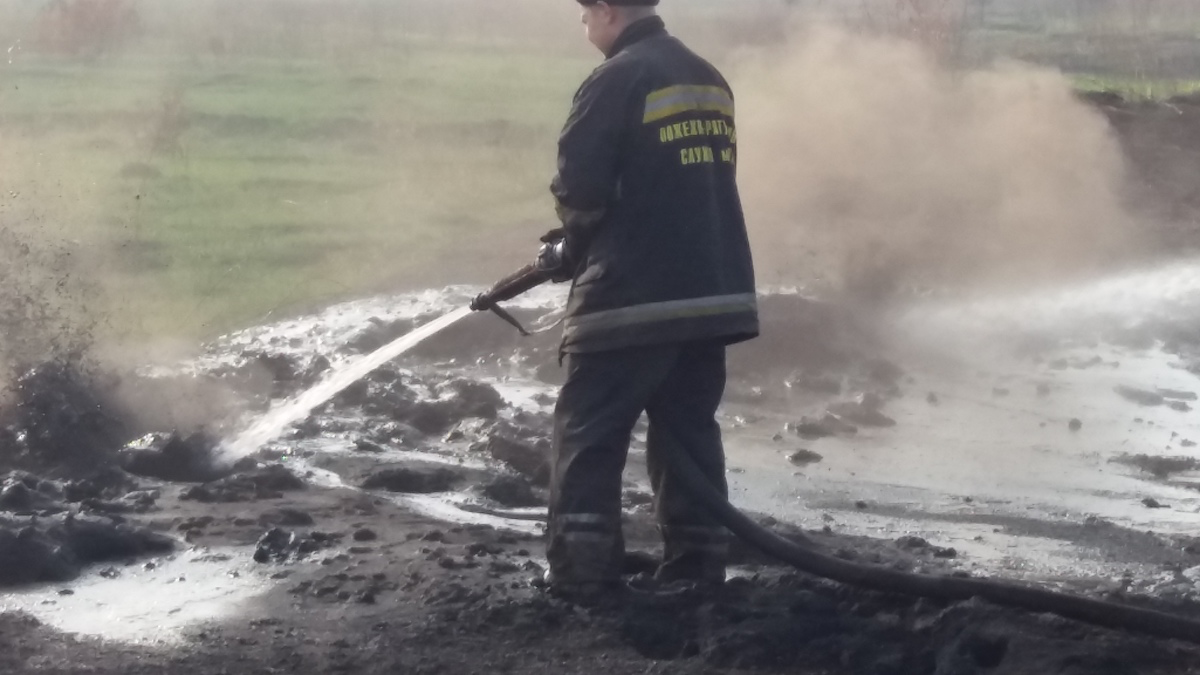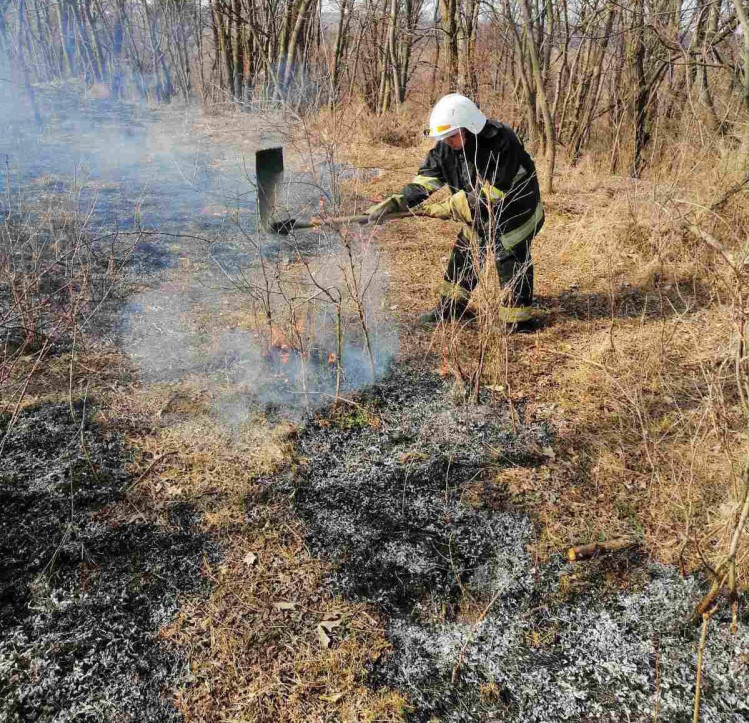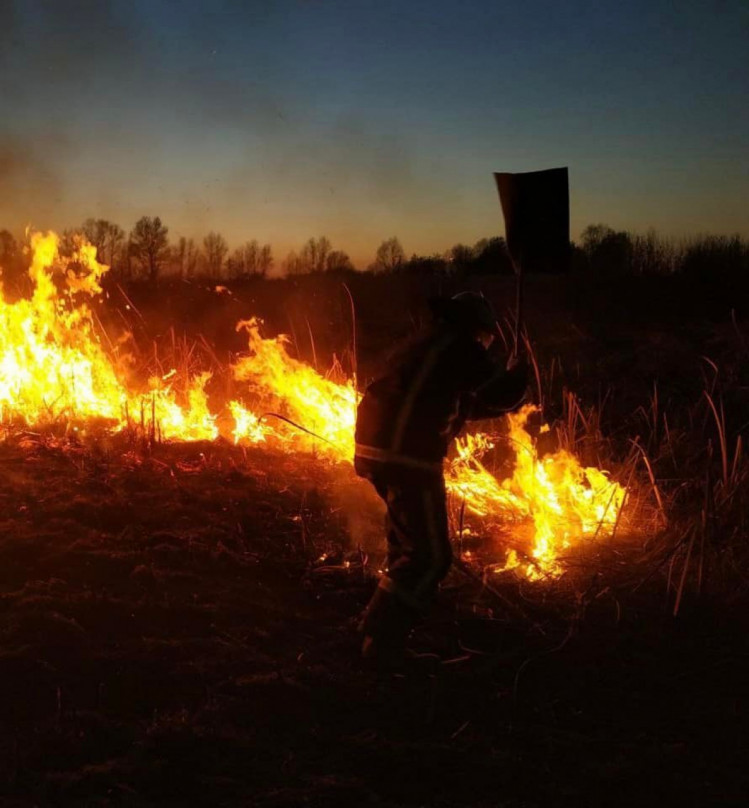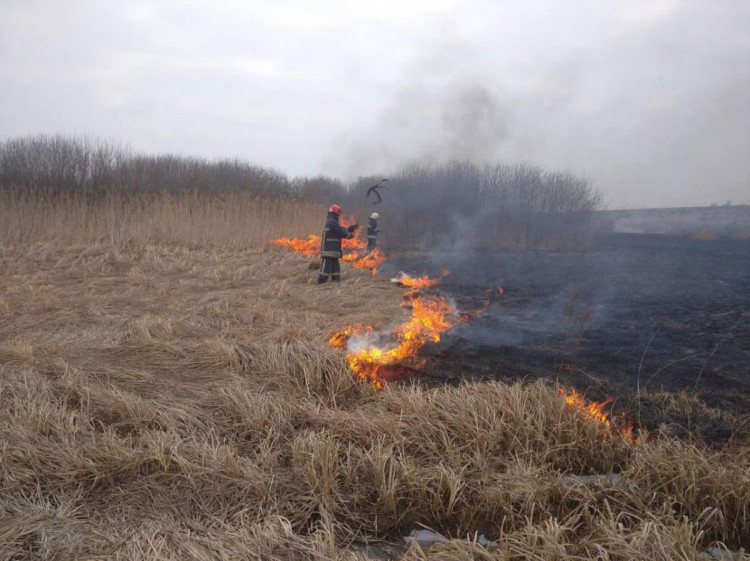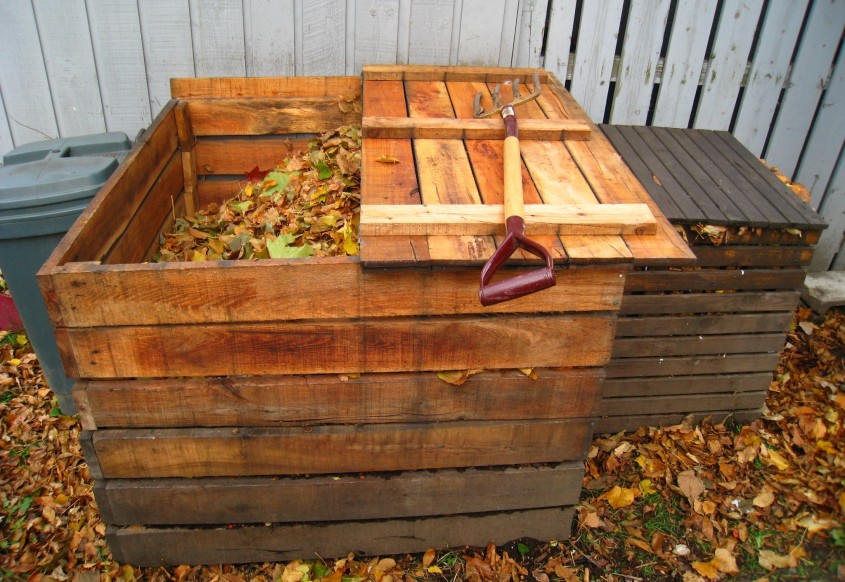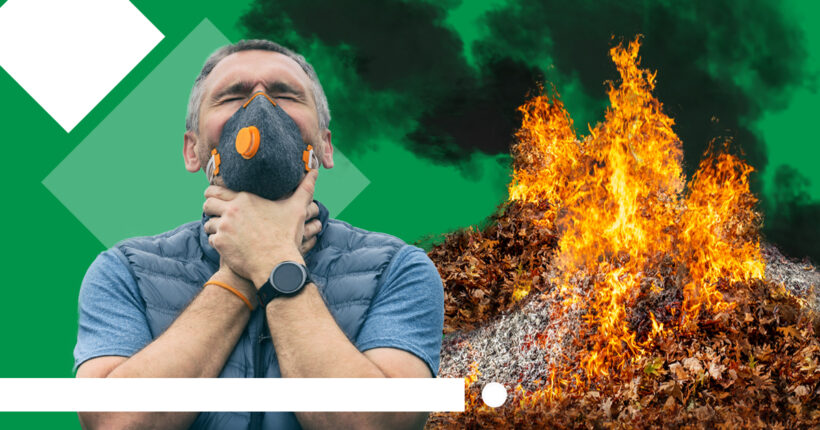
What is the problem?
Recently, for almost a whole week, Kyiv looked like a post-apocalyptic city: gray haze deprived residents of the opportunity to breathe normally. According to air quality measurements, our capital became one of the dirtiest cities on the planet for a while. The reason for this is the burning of peatlands in the Vyshgorod region.
At the same time, autumn is the season of fallen leaves and deadwood, when many Ukrainians continue to burn them despite fines and damage to the environment and their own health. We remind you about the dangers and consequences of such actions and explain the connection between burning leaves and peatland fires.
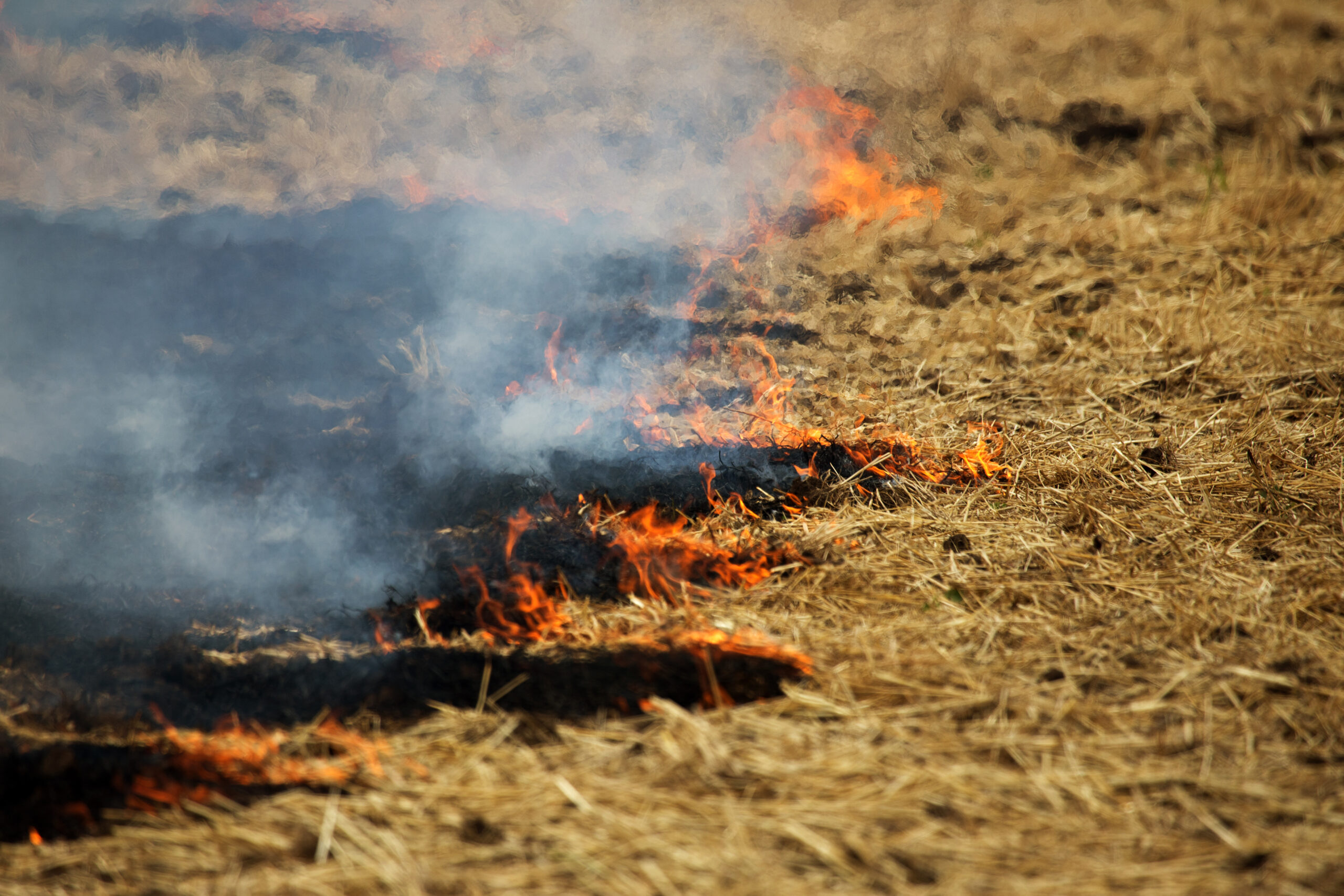
What do we know about peat fires?
Large-scale peat fires are an annual problem in Ukraine. Fires on peatlands most often occur in the territory of Ukrainian Polissia, Precarpathia, and Male Polissia, where the main massifs of peat soils are concentrated. "The power of peat," the term used by scientists, is extremely high in the Kyiv region; in some places, it reaches 6-7 meters! Kyiv is surrounded by a large number of small rivers, the banks of which are peaty. These are Irpin, Zdvyzh, Teteriv, Oster, Trubizh, and their tributaries.
Such fires are much more dangerous than forest fires, and it is more difficult to extinguish them:
- Although peatland fires typically spread over much smaller areas, they can burn underground even during moderate rain and snow. Such fires can last for years until the deposit is completely burned!
- As a result, peat fires burn almost ten times more biological mass than forest fires!
- Since peat does not burn but smolders, a vast amount of smoke is released during a peatland fire. This smoke can exceed the density of air by ten times, due to which it remains at the height of up to 2-5 meters, at the level of human breathing.
- In addition to harmful compounds in the atmospheric air, fires also pollute groundwater.
Why is it dangerous?
Pollution in the atmosphere persists to this day. According to the data of the State Emergency Service marker assessment of air quality in Kyiv, some indicators still exceed the maximum allowable norms. These are sulfur dioxide (0.014 mg per m3 instead of 0.05), carbon monoxide, nitrogen dioxide, and nitrogen oxide — such indicators show an excess of combustion products in the atmosphere.
These substances are toxic and, of course, harm our bodies. In particular, the mucous membrane is irritated, blood pressure drops, headaches appear, and you may also notice burning in the eyes. People who live in an area of high smog are at risk of intoxication by combustion products.
Why are peatlands burning, and what do the leaves have to do with it?
A geologist from the Institute of Geological Sciences, Kateryna Yaroshovets, notes that peat fires can be caused by
- lightning,
- traffic moving nearby
- self-ignition of peat due to exothermic thermal, chemical, and microbiological processes.
But this is only in 10–15% of fires. The human factor contributes to the other 90% of cases. And here we turn to the burning of leaves and deadwood, which is so harmful and, unfortunately, so popular among Ukrainians.
Such fires often become uncontrollable and turn into large fires. Fire often spreads to the fields, and residential buildings also suffer. This year, uncontrolled fires are also dangerous because they can lead to the detonation of military ammunition because Ukraine is currently the most mined country in the world.
And even if you are sure there are no peatlands in your area, burning leaves can be no less dangerous than peat burning. And here's why.
- First, your body suffers. Even if dry vegetation has little moisture, the flame temperature decreases, and carbon monoxide is produced from incomplete combustion. While burning one ton of leaves, 30 kg of carbon monoxide enters the air.
Reference: Carbon monoxide is a dangerous substance that easily binds to hemoglobin in the blood and blocks oxygen supply to tissues, resulting in oxygen starvation and "suffocation" of the human body cells. Harmful substances settle in the lungs and lead to asthma, diseases of the cardiovascular system, and cancer.
- Secondly, the environment suffers. When burning leaves and dry grass, insects, snakes, frogs, hares, hedgehogs, foxes, partridges, and other animals that cannot escape the fire, burn in the flame. Soil microorganisms that provide plants with nutrients and produce the top layer of soil, enriched with humus, burn out, due to which soil fertility decreases.
Burning household waste among leaves and dry grass, in particular, plastic products, leads to air pollution with complex organic substances, particularly polyaromatic hydrocarbons.

Do not give unnecessary work to the State Emergency Service
The eloquent address of the press service of the State Emergency Service of the Vinnytsia region on Facebook does not require additional comments:
"… At a time when our colleagues are rescuing thousands of people from under the rubble, eliminating numerous fires as a result of enemy shelling in a number of Ukrainian cities, the Vinnytsia State Emergency Service fighters are fighting like windmills and non-stop taming the flames in the region's ecosystems. There were 24 fires in the past day. The fire burned 30 hectares of land. This is at a time when Ukraine is under martial law! At a time when all mass media and the public emphasize the population's attention not to provoke fires in open areas! We remind you that such actions are equivalent to SABOTAGE! We call on the heads of territorial communities, village elders, and ordinary people to explain to citizens the danger of such actions and help the firefighters fight against leaves burners."
Indeed, during martial law in the country, people who burn leaves are brought to criminal responsibility under Article 113 of the Criminal Code "Sabotage," which provides for a punishment for the violator in the form of imprisonment for 10 to 15 years. Such a punishment awaits those who decide to "dispose" of leaves in such a hazardous and non-ecological way on the property (apartment buildings), in residential or green areas. Fines are also provided:
- Violation of landscaping rules regarding the burning of leaves, branches, deadwood, garbage, household, and other waste is subject to administrative liability (Article 152 of the Administrative Procedure Code): a fine for citizens — from 340 to 1,360 hryvnias, and for officials and entrepreneurs — from 850 to 1,700 hryvnias, respectively.
- Arson, destruction or damage to forests, green areas around settlements, along railways, stubble, dry wild grasses, vegetation, or its remains on agricultural lands by fire are punishable, according to Article 77-1 of the Code of Criminal Procedure, with a fine from 3,060 to 6,120 hryvnias, and if such actions were taken by an official – from 15,300 to 21,420 hryvnias.
- If such actions were committed within the territories and objects of the nature reserve fund, the citizen could be fined from 6,120 to 12,240 hryvnias, officials – from 21,420 to 30,600 hryvnias.
The only problem is that no one can ban burning leaves on their own land, so if your neighbors are burning leaves, you will have to become the "environmental police" yourself and explain to them the harm of burning. And we will tell you how to do it.
What is the solution?
We will remind what to do with fallen leaves
The best way to dispose of leaves is to compost them in a special composter or a pit. In the spring, you will receive a wonderful fertilizer for plants.
- If there are too many leaves, to accelerate the rotting process, it is mixed with organic matter from the house or biological substances, or worms are put there.
- If the leaves are sick, for example, have "curling," gardeners advise removing them from the stem circle and the garden in general. It is better to take such leaves outside the area, in a separate composter, where no other trees are nearby.
- If you do not have the opportunity to make a composter on your own plot, in some cities, citizens are offered to donate leaves. For example, in Lviv, tanks for the separate organics collection are placed at almost all container sites. Organics are collected by a separate car and brought to the composting station, where food and garden waste are processed into compost. Anyone can buy it for the needs of their farm. Also, a soil mixture made on the basis of compost is used for landscaping the city.
Let's take care of ourselves!
Environmentalists remind: if you smell an unpleasant smell of smoke nearby, remember that combustion products are harmful:
- Close the windows indoors, and do not go outside unless absolutely necessary.
- While staying in the smoke zone, use a scarf, handkerchief, or a clean cloth, preferably moistened with water, to protect the respiratory system.
- After the smoke has dissipated, wet clean indoor surfaces.
- You can monitor the air condition on the map.


